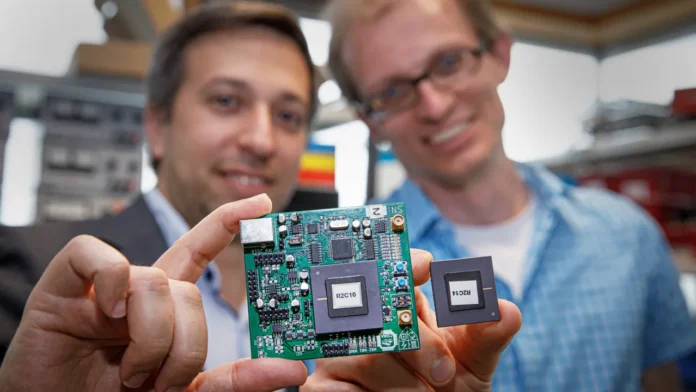Europe wants to become more independent in the field of chip production and development. In order to give the European chip industry a boost, 11 million euros will be made available for the development of faster and more efficient chips.
That money will go to Convolve, a project led by the Eindhoven University of Technology. The university is collaborating with seventeen other parties from Europe for this project. Convolve represents a tough task. The project should enable the transition to the world of the Internet of Things. This requires technological innovation.
Bandwidth and Energy
Now a lot of data from, for example, cars and telephones, is stored in the cloud. The data is then analyzed in the cloud and then sent back. That takes a lot of internet bandwidth and energy. In addition, it can take a long time and there are concerns about the security of the data that is sent.
On the edge
Edge computing should offer a solution for this. Data is then not stored in a central cloud, but on ‘the edge’ of the network: in the device itself. That would be faster and more efficient than centralized storage.
But to make the ideal of edge computing a reality, chips (read: processors) are needed that use a hundred times less energy than the current chips. In addition, the chips should ensure that hacking devices becomes more difficult. Something that is a major concern with the advent of quantum computers – which can break through today’s digital lock-down modes.
















